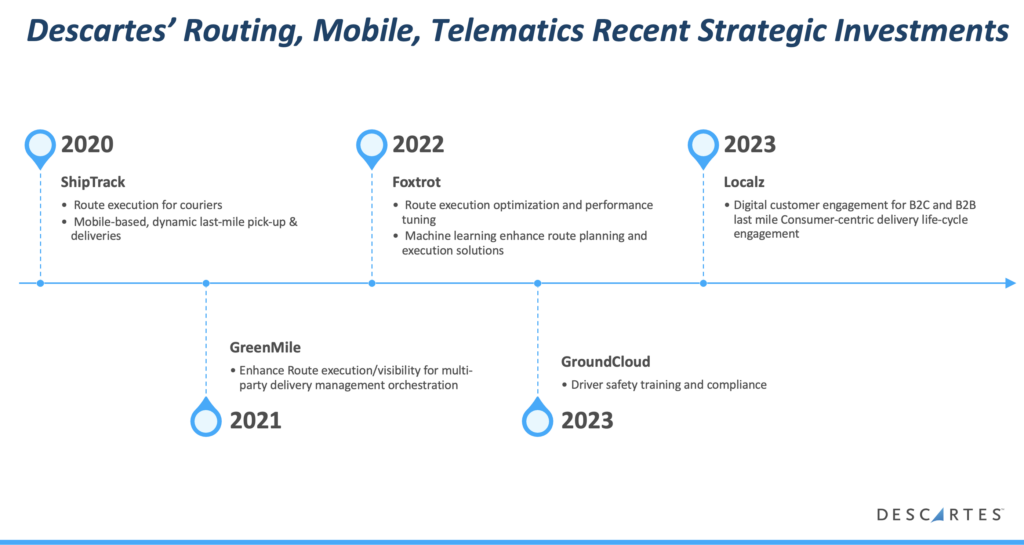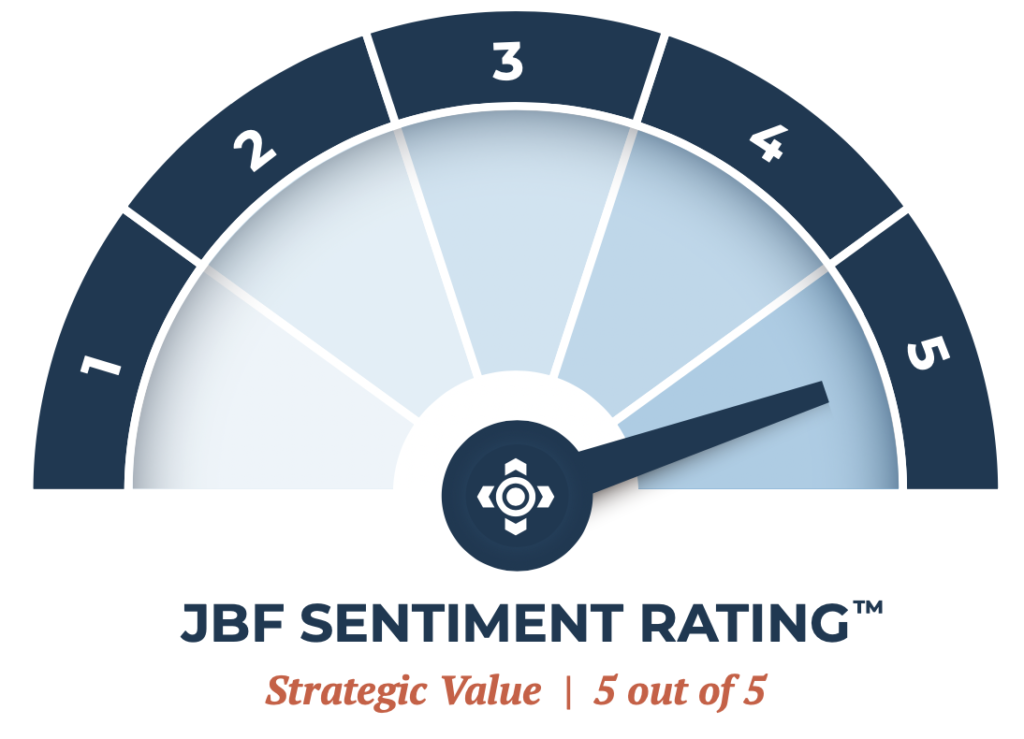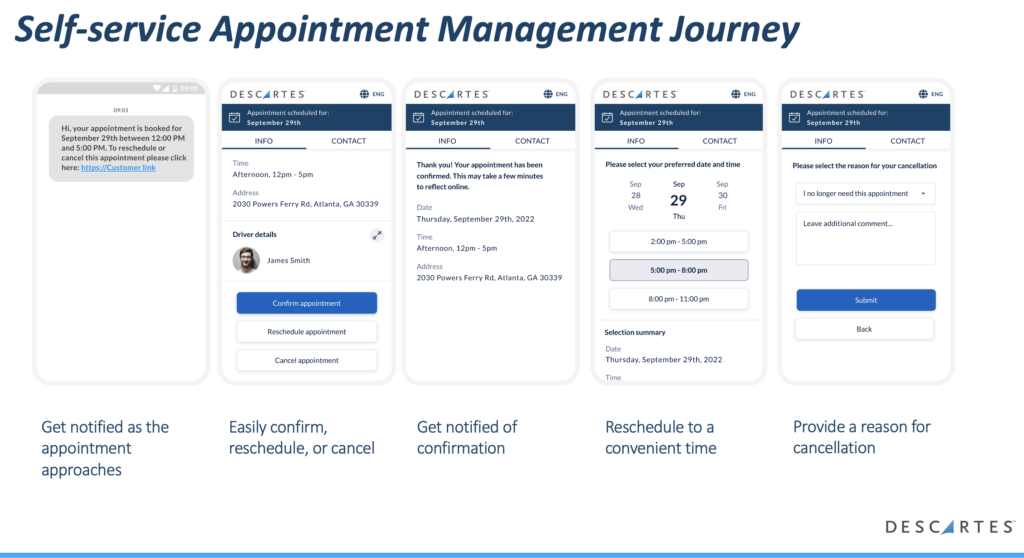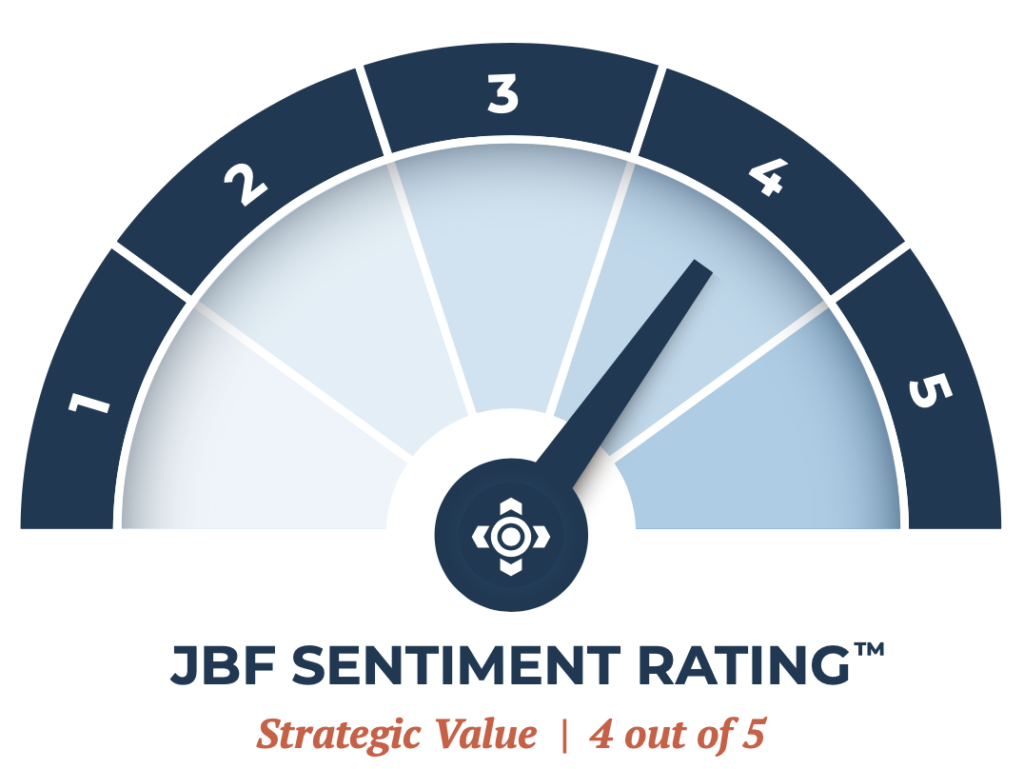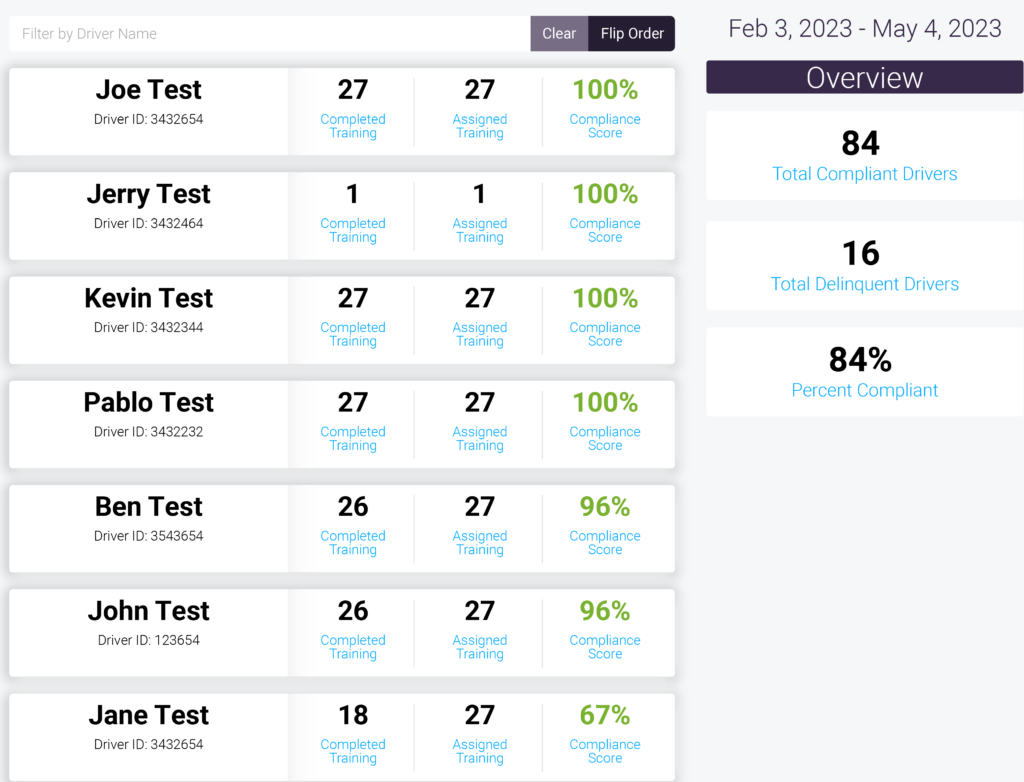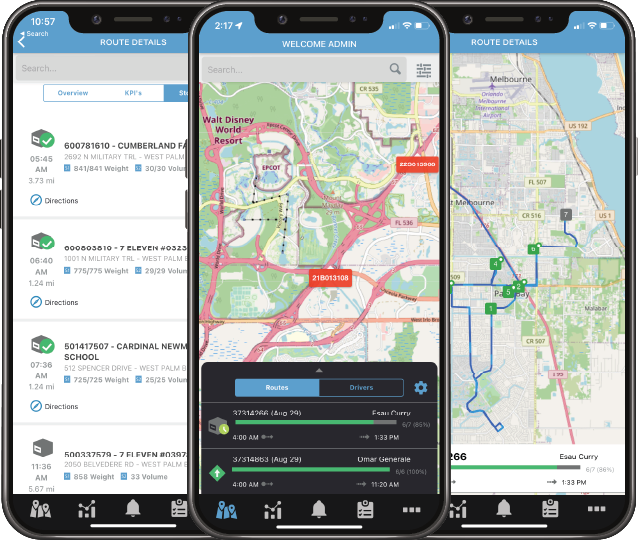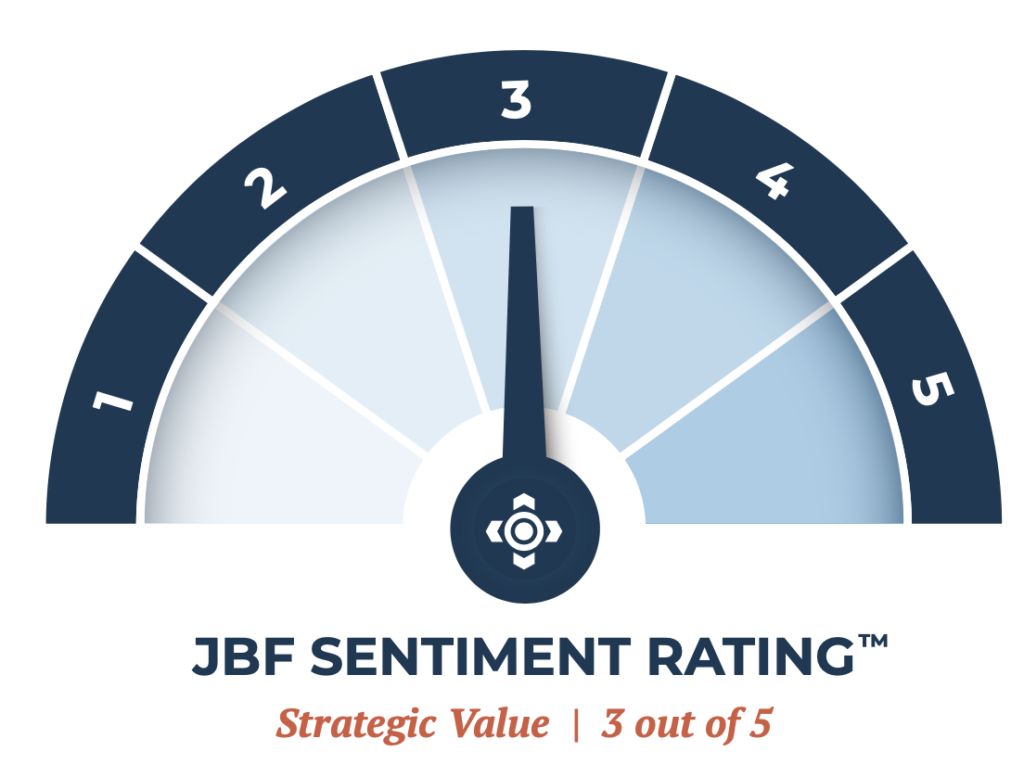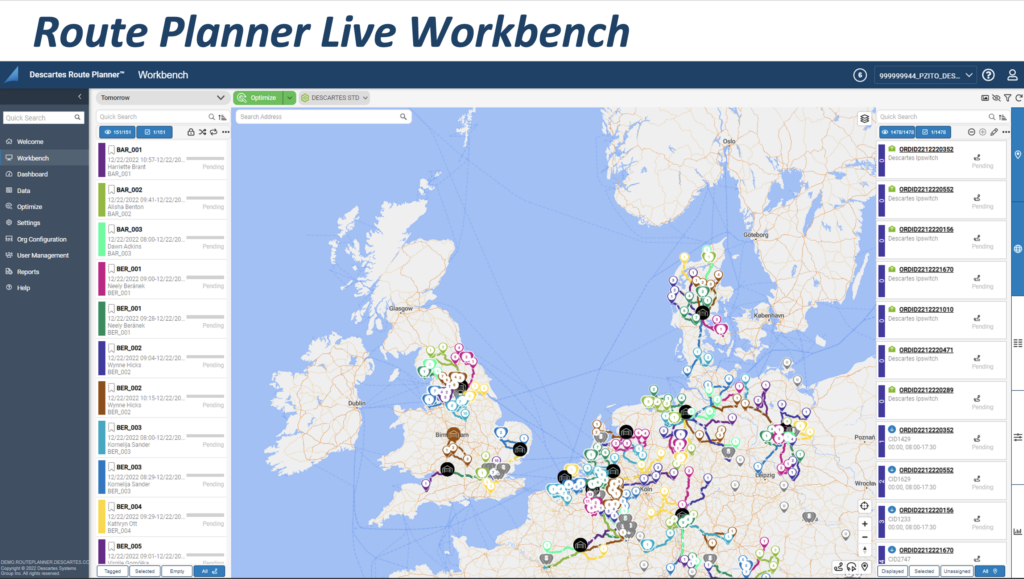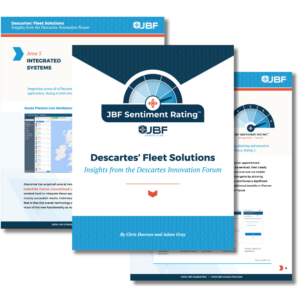by Chris Doersen and Adam Gray
Introduction
Descartes Systems Group unveiled a series of advanced technologies at their recent Innovation Forum for Routing, Mobile & Telematics. The event attracted a convergence of industry experts and cutting-edge solutions, highlighted Descartes' latest advancements in fleet operations. This underscores their commitment to enhancing the efficiency and effectiveness of routing, mobile, and telematics systems.
With far less pomp and pageantry than most conferences, the Descartes team discussed partnership and technology, with a strong focus on convergence of technologies. Several key acquisitions have been made over the past few years, and the benefits of those are now available alongside Descartes’ traditional Route Planner fleet-focused TMS. These new software solutions provide enhancements to existing systems, providing many companies an opportunity to improve their performance for fleets, driver safety, customer engagement, and more.
Focus Areas
Following are 5 areas that we thought were especially worth delving into:
Area 1 – Descartes Customer Engagement Platform
Digital self-service solution integrated with Descartes route planning and execution solutions to allow customers on-demand access to view delivery: Rating 5.
Real Time Routing and Delivery Visibility integrated with customer appointment selection allows customers to view options for when they can be serviced, then clearly track the progress of their orders. Delivery Options are optimized and sent via mobile device to the Fleet for execution, leading to customer satisfaction gains by allowing customers direct management of their delivery schedule. This contributes a significant reduction in customer service management for orders, with additional benefits in Planner due to dynamic route adjustments based directly on customer inputs.
Area 2 – Proactive driver safety training for Descartes Mobile customers
Seamless integration of microlearning-based driver safety training and tracking platform with Descartes Mobile solution: Rating 4.
Fleet Driver Safety Training
Source: https://www.descartes.com/solutions/safety-telematics-and-compliance/fleet-driver-safety-training
A benefit particularly for new and developing Fleets that may not have a completely mature safety program, this is a ready-made solution that offers options to track the status and completion of core operations safety training. Coupled with real time telematics of individual driver performance, systems can respond to current driving events and provide specific feedback to Drivers about situations they are encountering along with instruction tailored to help correct driver performance.
Carriers and their customers can encompass a dynamic range of safety and training requirements. This functionality does require Descartes’ Mobile platform, and it would be best when deployed for a growing Fleet that is not completely satisfied with its current suite of training programs or driver performance metrics.
Fleet Mobile Apps
Source: https://www.descartes.com/solutions/route-planning-execution-safety-and-customer-experience/mobile-apps
"These new software solutions provide enhancements to existing systems, providing many companies an opportunity to improve their performance for fleets, driver safety, customer engagement, and more."
Area 3 – Hours of service (HOS) status aware optimization with Geotab electronic logging devices (ELD)
Route planning integrated with Geotab ELDs to automatically consider drivers’ hours: Rating 4.
Coupled with the previously Customer Engagement Platform, or if just in use with your operational planners, direct tracking of a driver’s available hours, utilized in your route planning execution software provides a layer of compliance and feasibility that historically has had to be considered manually within Fleet operations.
A dynamic interface provides information on Driver HOS for when assigning Drivers, and actual available hours are considered when making dynamic adds and changes to dispatched routes. An interesting update to a traditionally less dynamic feature in most TMS applications, this functionality is best utilized for dynamic Fleets requiring significant post-dispatch adjustments, though note that Geotab is required.
Area 4 – Artificial intelligence (AI) and machine learning performance improvement and simulation
Significantly more precise machine learning-based recommendations for stop and drive times, plus the ability to simulate and identify potential improvements to optimization: Rating 3 (But doing more than most).
Plan versus Actual is a metric and mantra that we all hear repeatedly. A key input to transportation optimization, the accuracy of projected service times for customer deliveries can significantly improve execution to the plan, particularly for routes with a high number of stops.
Descartes’ approach utilizes historical SKU-level detail at each site to significantly reduce the variability and improve the accuracy of service times. Similar machine learning can be applied to drive times, further improving precision of predicted total route durations and stop arrival times. While this is not groundbreaking, these updated values can be simulated directly within RP, then automatically updated in the system, making it easier to apply the information.
Descartes’ more advanced functionality in the AI space helps identify improvement opportunities through multi-variate simulations. Various parameters and optimization settings are applied, then the results are provided to help companies target potential changes to advance their optimization solutions.
This is not intended to (yet) replace initial setup, especially for complex routing solutions, but it can help identify regional differences after the core solution has been established.
"An interesting update to a traditionally less dynamic feature in most TMS applications, this functionality is best utilized for dynamic Fleets requiring significant post-dispatch adjustments, though note that Geotab is required."
Area 5 – Integrated Systems
Integration across all of Descartes’ core transportation platforms and supporting applications: Rating 4 (with strong future potential).
Source: https://www.descartes.com/solutions/routing-mobile-and-telematics/route-planning-optimization-and-dispatch
Descartes has acquired several new technologies in the past few years: ShipTrack, GreenMile, Foxtrot, GroundCloud, Localz being the prime examples. The company has worked hard to integrate these applications into their overall Fleet platform, with mostly successful results. Individually, these are not revolutionary, but the impressive feat is that the overall technology platform continues to expand while still offering most of the new functionality as reasonably accessible options.
The future potential is significant, with RP Live hinting at the future. This is a new and impressive mid-level platform based on the more focused, basic RP platform (RP LNOS is still the crown jewel for complex solutions), which directly integrates applications like WinRoute strategic and frequency routing, allowing creation of master routes straight into RP.
Ideally, we would like to see improved integration of Descartes’ TM and RP, including common master data platforms—which would enable true Fleet versus Common Carrier optimization—but for Fleet solutions, the steady pace of development and integration of newly acquired applications is proving to be a winning recipe.
Summary
Rather than chase single “game changing” technology, the company has taken a broader, more methodical approach to improving its offerings over the past few years. Speaking with the many long-tenured members of the Descartes team, they share a mindset of converting customer feedback into valuable, executable solutions. The result is a synergistic suite of software that provides a strong, holistic solution, especially for companies operating private and/or dedicated contract carriage fleets. It will be interesting to see how Descartes continues to develop its holistic transportation management solution. Can they balance providing cost-effective options while cleanly merging new functions into a minimal number of platforms?
For any companies considering Descartes’ latest technology, it is essential to determine the value that each functionality provides before committing time and resources. This includes generating a realistic implementation plan and timeline, plus addressing the essential change management process. Be sure to get advice from a trusted, independent source whenever possible before making any impactful business decisions.
Click here to download the ebook version of this article.
About the Authors
Chris Doersen is an Executive Principal overseeing the Solutions Team at JBF Consulting. Chris’ talent is in leading diverse teams to create valuable and implementable solutions for complex supply chain networks.
He has 21+ years of experience working with large inbound and outbound supply chains in North America, Europe, and Brazil across a multitude of industries, including Automotive, Pharmaceutical, Retail, Consumer Packaged Goods, Food & Beverage, Appliance, Metals, and more. His functional expertise is in logistics management systems, network design tools, advanced transportation optimization, and continuous improvement processes.
In addition to being a certified Project Management Professional (PMP) and a Six Sigma Green Belt, Chris earned his BS in Marketing from The Ohio State University.
Adam Gray is a Supply Chain and Logistics Professional with 25+ Years of experience in the industry. His career started in Brokerage and Procurement, expanding to Fleet Operations, Warehousing, Transportation, Network Design, and Systems Implementation. When not solving Supply Chain issues, Adam can be found fishing and playing music as frequently as possible.
